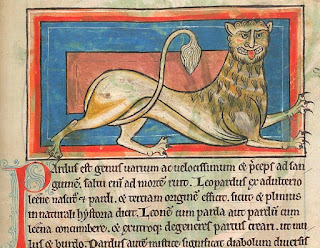So on 1 November 1254, Edward and Eleanor of Castile were wed in the Abbey of Santa Maria la Real de Las Huelgas in Castile, to great fanfare. They moved to Gascony, which had been granted to Edward, at the end of the month, where they were warmly received. Edward styled himself "prince and lord" although he did not receive any revenue from the Duchy, since Simon de Montfort, 6th Earl of Leicester, had been made lieutenant of the place by Henry.
For the first few years of his marriage, Edward was close to the Savoyards, his bride's family. Starting in 1257, he became close to the Lusignans, his father's half-brothers, who were disliked by the ducal houses of Gloucester and Leicester. Neither group of foreigners was considered a welcome influence on the future King of England, and back home there was a growing hostility to Henry's policies and Edward's choice of mentors.
Moreover, according to chronicler Matthew Paris, Edward's youthful behavior was entirely unsuitable to a future king. He tells stories of Edward's retinue (remember, we are talking about a teenager raised to be ruler over a country) attacking a young man whose ear was cut off and eye gouged out at Edward's command. The Song of Lewes, celebrating Simon de Montfort's victory at Lewes, describes Edward as a leopard: a leo, a proud and fierce lion, but also a pard, unreliable. He is painted as changeable, frivolous, and known to get rowdy with his peers and trash places.
He also tended to take sides in disputes, rather than follow his father's policy of trying to mediate between factions. When the Provisions of Oxford were drawn up in defiance of his father's wants and threatening the influence of the Lusignans, Edward spoke out against the Provisions, but when the same Barons rebelled against Henry a few years later, Edward sided with their leader, Simon de Montfort, seeing de Montfort's influence as his best chance to keep Gascony under control.
In November of 1259, Henry went to France to negotiate peace with France over disputed territory, and Edward started [putting his own people in positions of power, siding with the Barons and planning with them to put his father in captivity when he returned. When Henry, forewarned of the events back home, returned many months later, he sent messages to his loyalists to meet him in London with the military force they were obligated to provide him. He came to London and met with the barons' leaders, but refused to see his son.
1264-1267 saw civil water in England, specifically the Second Barons' War against Henry. What did Edward do? I'll tell you tomorrow.

